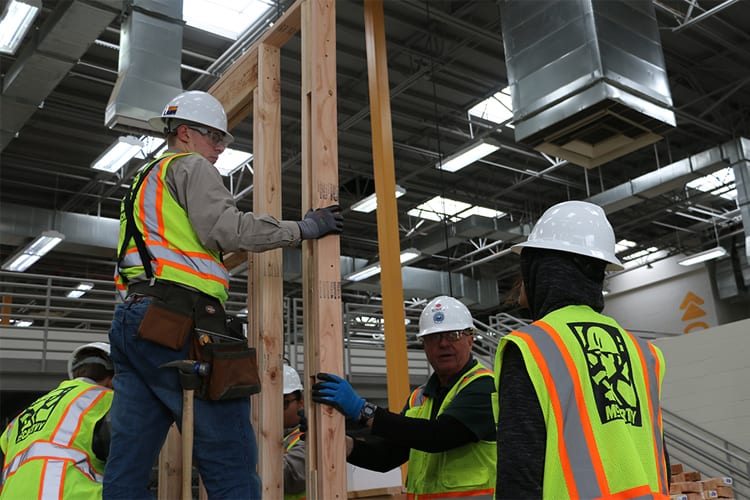Construction students at Western Maricopa Education Center (West-MEC), a public career technical education district, partnered with local physician Dr. Jeannine Hinds to build a mobile clinic that provides free medical services to homeless families and at-risk youth.
During the holiday season, it’s easy to focus on the present with the biggest box, but, as the saying goes, good things come in small packages.
The same can be said for medical clinics.
“We want to develop a family in the community so when they see our clinic rolling by, everyone knows it’s going to be a great day,” said Dr. Hinds.
Starting Small
In August, the construction students at West-MEC’s Northeast Campus didn’t know the impact they’d be making by winter break. These students–juniors and seniors in high school–began the new school year ready to learn how to operate power tools, frame houses, and design blueprints.
“My grandfather was a block layer and my dad ran heavy equipment for years. Construction runs in my blood,” said Boulder Creek High School senior Jake Williams.
Regardless of previous experience, Mr. Terry Brezina, the construction instructor, works with students on small-scale exercises before breaking the class into crews to build larger projects.
Over the years, West-MEC construction students have built a variety of structures, but Mr. Brezina, a veteran, has a heart for service and wanted the students to give back to the community.
“When I heard about the tiny houses that were being built downtown for the homeless, I reached out to Build us H.O.P.E. They referred me to Dr. Hinds, who’s been a real jewel through the whole process,” said Mr. Brezina.
Miniature Ministry
While Dr. Hinds was still an undergraduate, she ran campus crusades and college bible studies at Northwestern University. Her passion for helping others led her to create Oasis Ministries, a nonprofit organization that helps new churches build up their infrastructure. Though she found the work rewarding, something was missing.
“I’ve always felt that those who really need help will never come to the church or the clinic for whatever reason, they don’t have transportation, they don’t have money, they’re too embarrassed. I kept thinking, ‘The people who need us are out there, and we’re in here, so how do we get out there?’” said Dr. Hinds.
With her mission to take her faith beyond the walls of the church, she decided to take the show on the road.
A fan of the tiny house movement–where people live in mobile homes under 500 square feet–Dr. Hinds had a vision of bringing a mobile clinic to a park and providing free healthcare to homeless individuals, along with the opportunity to worship later in the day.
“We’re hoping to go out twice a month for now, a West Valley event and an East Valley event,” said Dr. Hinds.
Building Goodwill
Through a connection at Build us H.O.P.E., a housing and support service for homeless individuals, Dr. Hinds was introduced to Mr. Brezina. They quickly decided the project would be beneficial for the community and Mr. Brezina’s class.
However, some students were hesitant at the beginning.
“At first I didn’t think we could do it. There’s a lot to think about–lives are at stake because this thing is going to be on the road,” said Williams.
Undoubtedly, there are many moving parts to a project like this: proper water storage, sanitation stations, and obtaining insurance, to name a few. But the students have managed to hone their new skills despite the challenges.
“It was just a regular trailer and we gutted it right down to the frame. The students really got into it,” Mr. Brezina laughed.
Dr. Hinds has made a point to support the students and give back to West-MEC. She taught a class on safety and trauma to the construction students and visits them three Fridays a month. Moreover, she met with the West-MEC medical assisting teachers to see how they can support each other in the future.
In the end, the lesson is best summed up by he who learned it: “Knowing we’re building [the mobile clinic] and it’s going to help somebody makes me feel like what we’re doing is not just for our benefit. This is like charity. It makes me feel good I’m doing something for the better of an idea, not just for profit,” Williams reflected.




